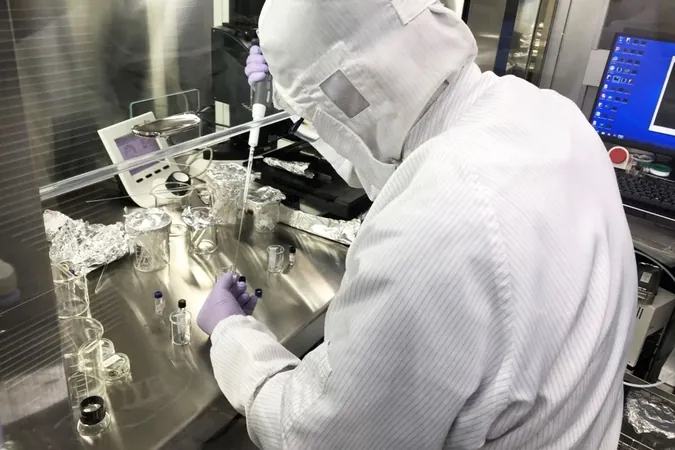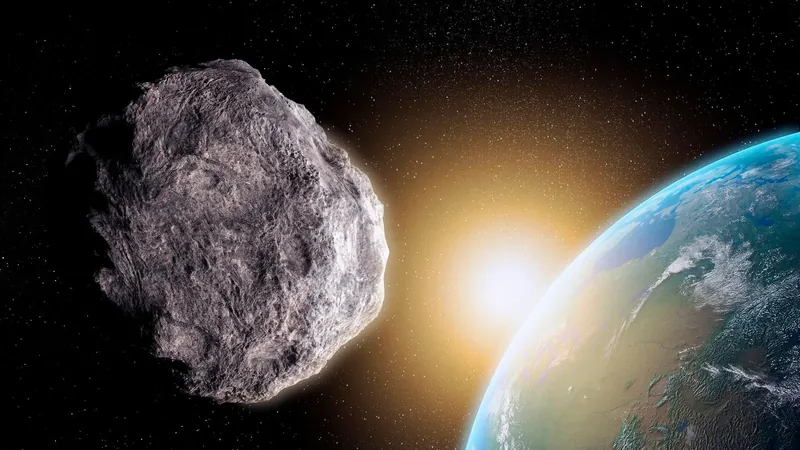
Asteroid Bacteria: A False Alarm for Extraterrestrial Life?
2024-11-24
Author: Olivia
Asteroid Bacteria: A False Alarm for Extraterrestrial Life?
In an exciting revelation that sparked the imaginations of astronomy enthusiasts around the globe, scientists initially believed they had found bacteria on a rock retrieved from the asteroid Ryugu. This rock was brought back to Earth by the Japanese space mission Hayabusa 2, which traveled an astounding 186 million miles into the cosmos. The discovery of water and a chemical compound associated with RNA led many to speculate about the existence of microbial life beyond our planet.
However, a recent study published in Meteoritics and Planetary Science has dashed these hopes, revealing that the microbes found were likely contaminants from Earth rather than signs of extraterrestrial life. Researchers conducted rigorous testing on the Ryugu sample, led by Matthew Genge from Imperial College London, and found no evidence of indigenous microbial life. Instead, the organic materials discovered appeared to be terrestrial in origin.
"The presence of terrestrial microorganisms within a sample of Ryugu highlights the remarkable ability of these tiny life forms to colonize new environments, even under stringent contamination control measures," the authors explained. They cautioned that finding microorganisms in space-returned samples does not automatically imply an extraterrestrial source.
This is not the first incident where scientists have felt the thrill of potentially discovering alien life, only to have it dashed by further investigation. In 2020, a study published in Nature Astronomy reported possible traces of phosphine gas in Venus's atmosphere, a substance linked to anaerobic bacteria on Earth. Yet, two follow-up studies failed to confirm these findings, leading scientists to conclude that the earlier analysis was based on misinterpreted spectrometric data.
The recent findings regarding Ryugu serve as a sobering reminder of the challenges and complexities inherent in the search for extraterrestrial life. The ability of Earthly microbes to contaminate samples from space raises crucial questions about how researchers conduct planetary exploration and the measures needed to prevent contamination in future missions.
As the quest for knowledge about the universe continues, one thing is clear: while the dream of finding alien life remains alive, the excitement of discovery must be tempered with the rigor and caution of scientific inquiry. Will we ever find definitive evidence of life beyond Earth? Only time will tell, but for now, let’s keep looking to the stars!









 Brasil (PT)
Brasil (PT)
 Canada (EN)
Canada (EN)
 Chile (ES)
Chile (ES)
 España (ES)
España (ES)
 France (FR)
France (FR)
 Hong Kong (EN)
Hong Kong (EN)
 Italia (IT)
Italia (IT)
 日本 (JA)
日本 (JA)
 Magyarország (HU)
Magyarország (HU)
 Norge (NO)
Norge (NO)
 Polska (PL)
Polska (PL)
 Schweiz (DE)
Schweiz (DE)
 Singapore (EN)
Singapore (EN)
 Sverige (SV)
Sverige (SV)
 Suomi (FI)
Suomi (FI)
 Türkiye (TR)
Türkiye (TR)